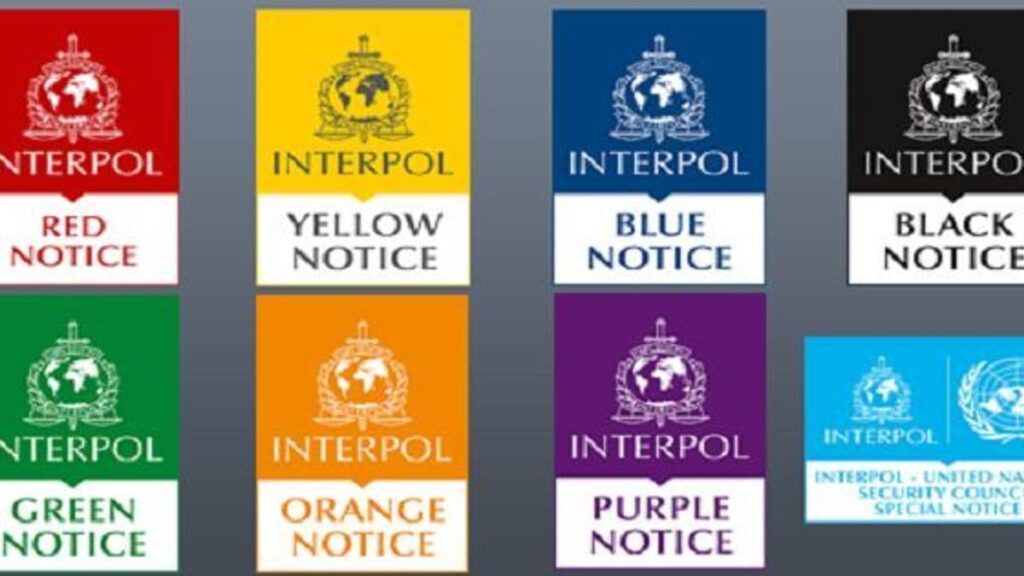
How Interpol notifications work: types and legal consequences
The Interpol notification system is one of the key tools of international police for exchanging information between countries. These notifications are used for searching, identifying, and detaining individuals suspected of committing crimes or determining their whereabouts. However, in practice, notifications can become a tool of pressure, especially in cases where countries use them to persecute opposition members, businessmen, or refugees. If you have learned about the presence of Interpol notices against you, it is important to immediately contact Interpol lawyers with experience in international legal systems.
The history and evolution of Interpol notifications
Interpol was created in 1923 as a mechanism for cross-border police cooperation. Initially, the organization exchanged information in paper form, but with the development of technology, the structure of notifications has significantly changed. Today, there are nine types of notifications, each with its own color coding and specific legal function. The notification system has become the official means of recording requests between law enforcement agencies of member countries.
Since 2003, after a series of scandals related to political persecution, Interpol created the Commission for the Control of Files (CCF), which reviews complaints from citizens and organizations about improper notices. This allowed for increased control, but abuses have not completely disappeared.

Types of Interpol Notifications
The most well-known notifications:
- Red Notice — essentially, an international request for arrest. It is used for detaining a person with subsequent extradition. It is not an arrest warrant in the legal sense but is often perceived as such.
- Blue Notice is used to establish the whereabouts or additional information about a person. It is often applied as a stage before a request for arrest.
- Purple Notice — records the features of a crime, technical details, for example, fraud schemes or cybercrimes.
- Yellow Notice (Yellow Notice) is used for searching for missing persons, including minors.
- Orange Notice — a warning about danger (for example, the presence of explosives or terrorist threats).
- Black Notice is used to establish the identity of an unidentified body or a person without documents.
In addition, there are green, gray, and pink notifications, each of which has its own function in the structure of international information exchange.
How do countries use Interpol notifications?
Although officially Interpol prohibits the use of notices for political purposes, in practice, state authorities often send requests against opposition members, journalists, activists, and businessmen who have left the country. This happens especially frequently during a change of political power or an intensification of repressions.
Some countries use red notices to bypass extradition procedures. In some cases, a person may be detained immediately after crossing the border, even if the host country refuses to comply with the request.
It is important to understand: the presence of a notification does not always mean that a person is guilty. Sometimes data is submitted without sufficient evidence, and the process of disputing it can take months. That is why, when a mention of you appears in the Interpol system, it is important to get help from experienced human rights lawyers.
Consequences of Interpol notifications for a private individual
The presence of a notification in the system can have serious consequences:
- Restriction of freedom of movement: detention at the border, visa cancellation, or denial of entry.
- Freezing of accounts, assets, and crypto wallets.
- Loss of business reputation and contracts.
- Threats of extradition, even if the country of residence protects the right to asylum.
- Violation of the right to a fair trial if the notification is based on inaccurate or incomplete data.
All this can happen even in the absence of a court decision on the merits. Therefore, it is important to promptly file a complaint with the CCF and initiate the removal of the notice.
How to file a complaint about an Interpol notice?
The procedure for filing a complaint is regulated by the internal acts of CCF and requires legal preparation. General algorithm:
- Obtain confirmation of the notification’s presence (through a lawyer or an official request procedure).
- Form a legal position, pointing out the violations: political motivation, absence of a court decision, refugee status, violated procedures.
- Prepare evidence: copies of court rulings, case documents, political dossier, publications, international statements.
- Send a complaint to CCF with all arguments and attachments specified.
- Track the status and interact with the commission until an official decision is received.
In practice, the procedure can take from 4 to 12 months. During this period, it is important to have legal support to promptly respond to additional requests and protect your interests.
Why should you turn to Human Rights Lawyers?
Lawyers of the company Human Rights Lawyers specialize in cases related to international search, human rights violations, unlawful extradition, and removal of notices from the Interpol database. The team works with clients worldwide, including Europe, the Middle East, the USA, and Latin America.
We:
- We conduct a legal audit of notifications;
- We are forming an evidence base for an appeal;
- We represent the client’s interests in CCF and international structures;
- We protect against extradition and provide legal support in court;
- We prevent asset blocking and ensure migration security.

Communication with lawyers
If you suspect that an Interpol notice may be issued against you, or you have already faced the consequences—do not wait for official confirmation. In such cases, delay can result in the loss of freedom or assets.
Contact Human Rights Lawyers via WhatsApp or by phone: +357 96 447475. We guarantee confidentiality, promptness, and international legal protection.